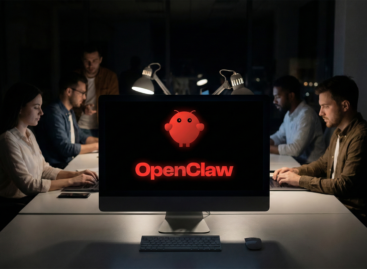Ipsos: we love and fear artificial intelligence at the same time
According to a global AI monitor survey by Ipsos (published in June 2024, involving 32 countries and nearly 24,000 respondents), half of us are enthusiastic about AI and the other half are worried about it – and we are either supportive or against AI.

This article is available for reading in Trade magazin 2024/10
There is a widespread belief worldwide that AI, which has entered our lives and is still evolving rapidly, will bring about great changes in the next 3-5 years.
We are enthusiastic and worried just as much
We are both excited and worried about AI: 53% of respondents – mainly in Asia and Latin America – are enthusiastic about AI-powered products and services, while 50% – typically in the Anglo-Saxon countries and Europe – are sceptical about the new technology. 67% of respondents in 32 countries said they understand what AI is all about. Looking at the different generations, it is perhaps no surprise that younger people – 72% of Gen Z and 71% of millennials – understand more what AI is about, compared to 58% of baby boomers. 52% of those surveyed said they know which products and services utilise AI, but this average also varies considerably between countries. Asia has the highest proportion of respondents who say they can identify AI-enabled products, with China (81%), Indonesia (80%) and Thailand (69%) leading the list. The countries in Europe and North America are the least able to identify such products and services, with 36% in Canada and 37% in both the Netherlands and Belgium.
Are we safe?
Many people are unsure whether their personal data can be safe from AI. Compared to 47% of those who aren’t worried about this, 41% believe their personal data isn’t safe with companies using AI. In 29 out of the 32 countries surveyed there is a more prevalent perception that humans are more discriminatory than AI. Baby boomers are slightly less trusting of companies relying on AI than younger people. While all generations view AI as less discriminatory than humans, baby boomers are the most divided: 45% believe AI is less discriminatory and 41% trust humans more. In Gen Z 59% reckon AI isn’t discriminatory, while 47% trust humans more in this area.

Majority think AI will influence the future
Every second respondent said products and services using AI have already changed their everyday lives. China and Indonesia lead the way (78% and 73%, respectively). This proportion is even higher when looking ahead to the next 3-5 years, with 66% agreeing that the coming period will bring even more changes in this area. Indonesia (87%), Thailand (81%) and China (80%) are the countries where there is near universal agreement that AI will change the way people work over the next five years. Europeans are the least likely to expect major changes in the workplace: 38% in the Netherlands, 43% in Germany and 44% in Poland expect big changes. In spite of the common views on the effects of AI, only 36% think AI will take away their current job in the coming years. //
Related news
A developing digital employee who works independently – AI has taken the next level
🎧 Hallgasd a cikket: Lejátszás Szünet Folytatás Leállítás Nyelv: Auto…
Read more >Hungarian world first: AI calculator calculates how much a company will lose during the flu season and how much can be saved by using preventive technologies
🎧 Hallgasd a cikket: Lejátszás Szünet Folytatás Leállítás Nyelv: Auto…
Read more >Tuned to efficiency
🎧 Hallgasd a cikket: Lejátszás Szünet Folytatás Leállítás Nyelv: Auto…
Read more >Related news
Farewell day at the 60th anniversary EuroShop trade fair
🎧 Hallgasd a cikket: Lejátszás Szünet Folytatás Leállítás Nyelv: Auto…
Read more >NAV: Women’s Day inspections begin
🎧 Hallgasd a cikket: Lejátszás Szünet Folytatás Leállítás Nyelv: Auto…
Read more >









